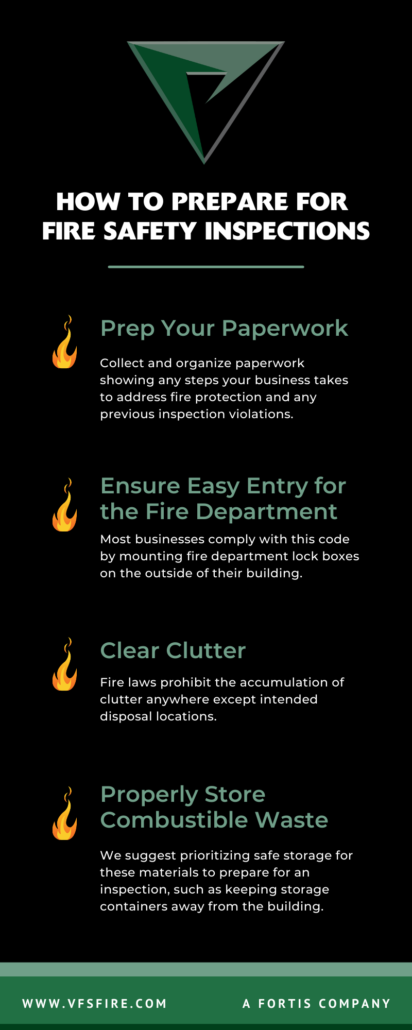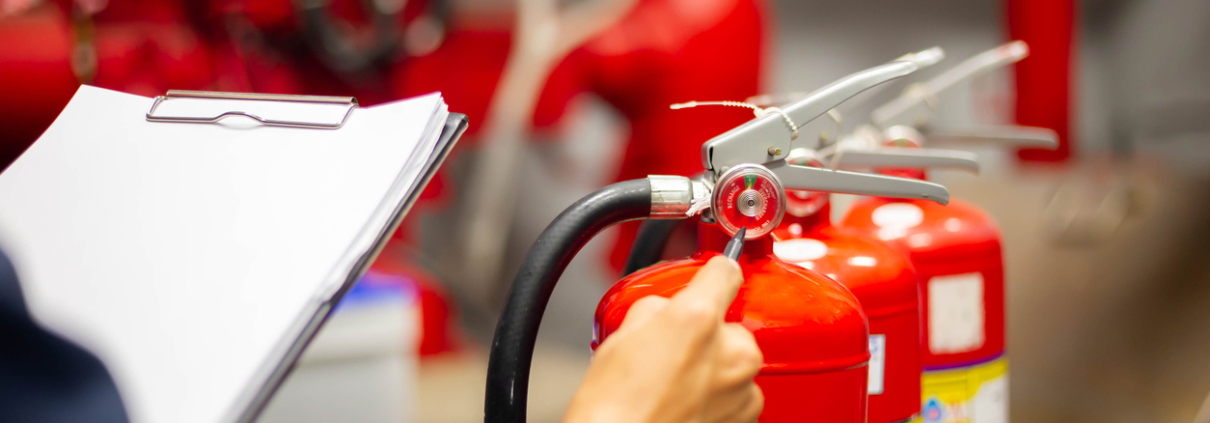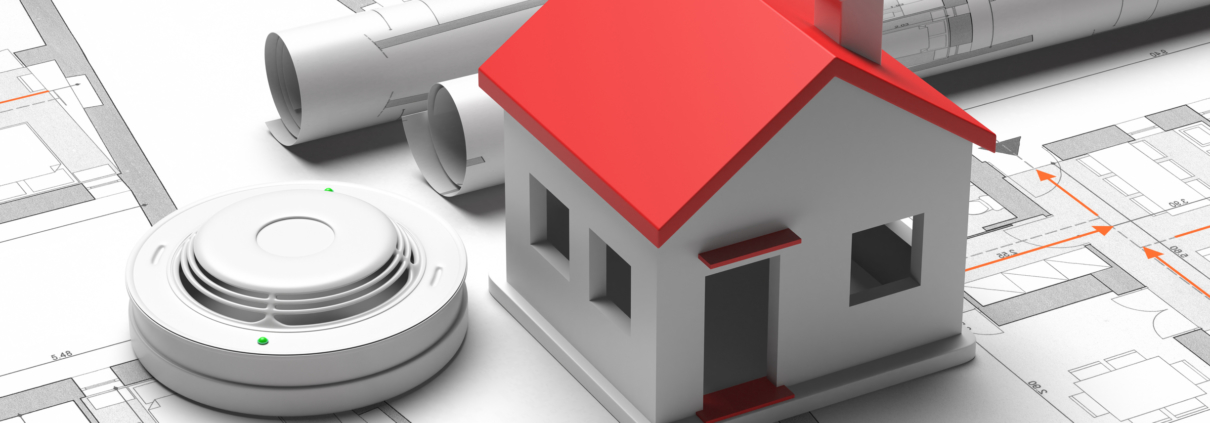An unscheduled fire safety inspection can feel like a pop quiz for property owners. However, just like in school, this pop quiz won’t be too bad… if you did your homework!
(Don’t worry, you won’t need to do any pre-calc to prepare for a scheduled or unscheduled fire safety inspection!) All you need to do is follow a few simple steps.
Below, we’ve prepared a fire safety checklist to help you prepare and pass your next inspection—whether it’s scheduled or a drop-in—with flying colors.
Let’s take a look!
Prep Your Paperwork
Collect and organize paperwork showing any steps your business takes to address fire protection and any previous inspection violations. This demonstrates that your business is committed to meeting requirements.
Collect Proof of Services and Inspections
Keep track of services and inspections that licensed professionals have performed on your systems, such as:
- Serviced fire alarms
- Fire extinguishers
- Sprinkler systems, and
- Fire pumps
Make Appointments for Outstanding Maintenance
It’s time to sit down and make some appointments—yay! Contact some trained professionals (like our team at VFS) to help with the maintenance of your fire protection systems. This will not only help you pass inspections but also will protect your people and property.
Not sure if your commercial property needs servicing? Read on to learn how often fire protection systems should be serviced.
Take Precautions Against Special Hazards
Special hazards are areas that require special hazard fire equipment and fire alarms.
Building owners should note that special hazards are not specific fire hazards that occur as a result of certain situations or triggers, such as a flammable liquid being too close to a heat source.
Instead, special hazards can be things like gasoline pumps, computer server rooms, or storage areas that may contain flammable or combustible chemicals.
Read on to learn more about solutions to special hazards.
Clear Clutter
To prepare for a fire safety inspection, building owners should make it a priority to avoid clutter. Why? Clutter can quickly become combustible waste and serve as fuel for fires.
Combustible waste can take many forms, including:
- Trash (i.e. cardboard boxes, paper, cartons, etc.)
- Debris
- Plant matter
- Yard trimmings
- Fallen trees
- Wood, and
- Leaves
Fire laws prohibit the accumulation of these items anywhere except intended disposal locations.
Lastly, property owners should make an active effort to keep their hallways free from obstructions.
Properly Store Combustible Waste
It can be difficult to keep combustible materials off your property at all times. Instead, we suggest prioritizing safe storage for these materials to prepare for an inspection.
For example, property owners can:
- Use lids on containers 40 gallons or greater
- Keep containers exceeding a capacity of 40.5 cubic feet outdoors and over five feet away from construction work
- Keep storage containers away from the building, and
- Ensure storage containers near facilities don’t contain oily rags or other unsafe materials without proper container identifications
This will help keep any staff working on the property safe as well as help prepare the space for inspection.
Ensure Efficient Entry for the Fire Department
According to national codes, all buildings must offer firefighters safe and immediate access.
Complying with this code should be simple. Most businesses comply with this code by mounting fire department lock boxes on the outside of their building.
This way, in the event of an emergency, the fire department can open the lock boxes with a master key and enter the building.
Part of the reason for keeping clutter out is to allow firefighters to safely navigate the building. Trust us, you don’t want firefighters tripping over the cardboard boxes from Amazon during a fire!
Make Sure the Fire Department Has Access to Water
Building owners should clearly mark all fire hydrants and ensure they are available for use. Additionally, fire hydrants must have three feet of clear space on all sides to allow firefighters access. This means that the building occupants should not be parking within this space—sorry Brandon from HR, it’s time to learn to parallel park!
Further, to prepare for inspection, building owners can check the fire department connection (FDC) that allows firefighters to supply water to a sprinkler system. This system should also be marked and accessible.
Need Help Preparing For Inspection?
At VFS Fire & Security Services, we have a diverse team of experienced fire protection professionals who are capable of inspecting and servicing even the most complex fire protection systems.
We tell you what’s due, when it’s due, and why it’s due, and are constantly communicating with your team to keep you up-to-date on the latest information within your facilities.
Read on to learn more about our testing and inspection services.





